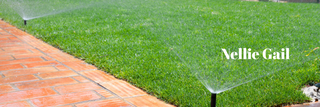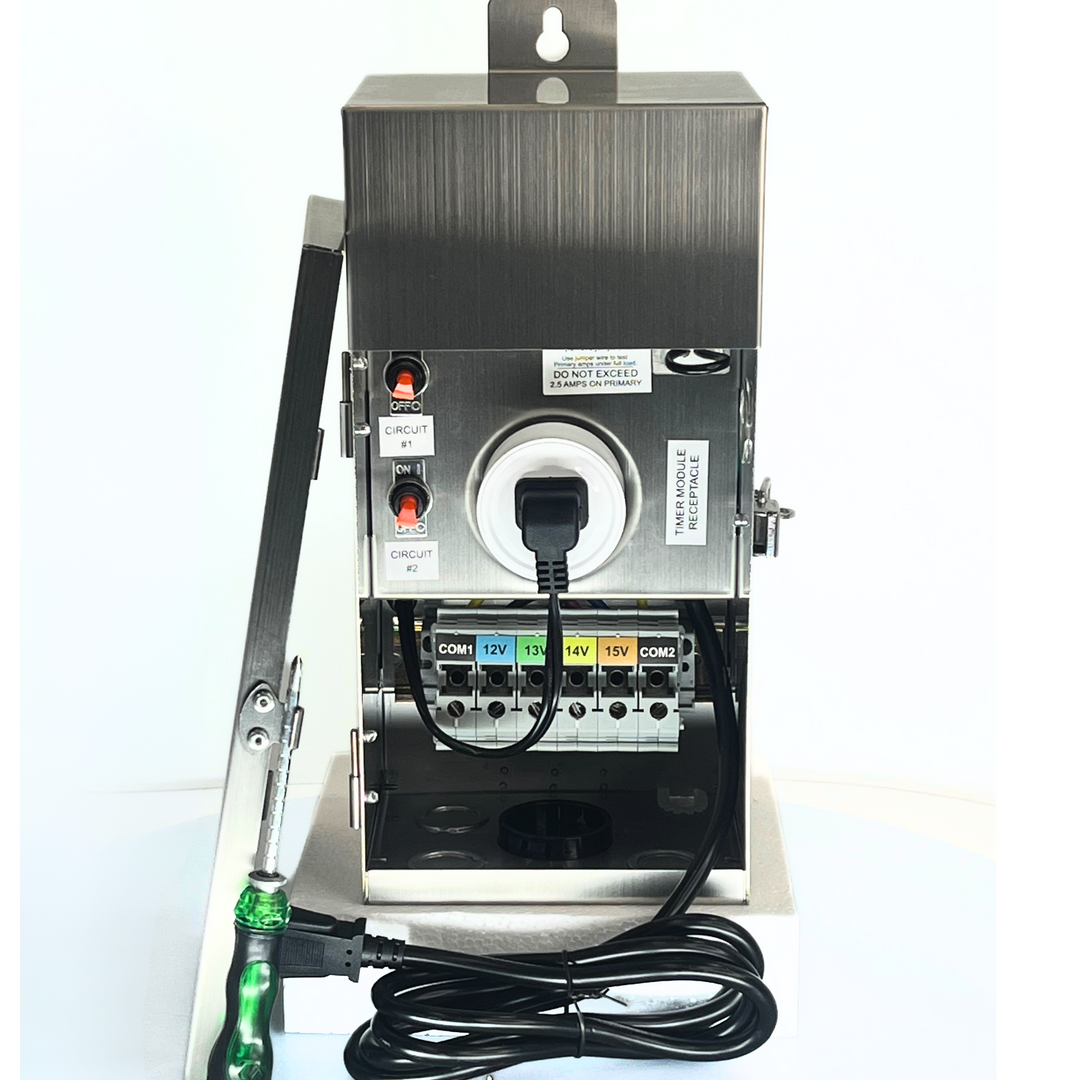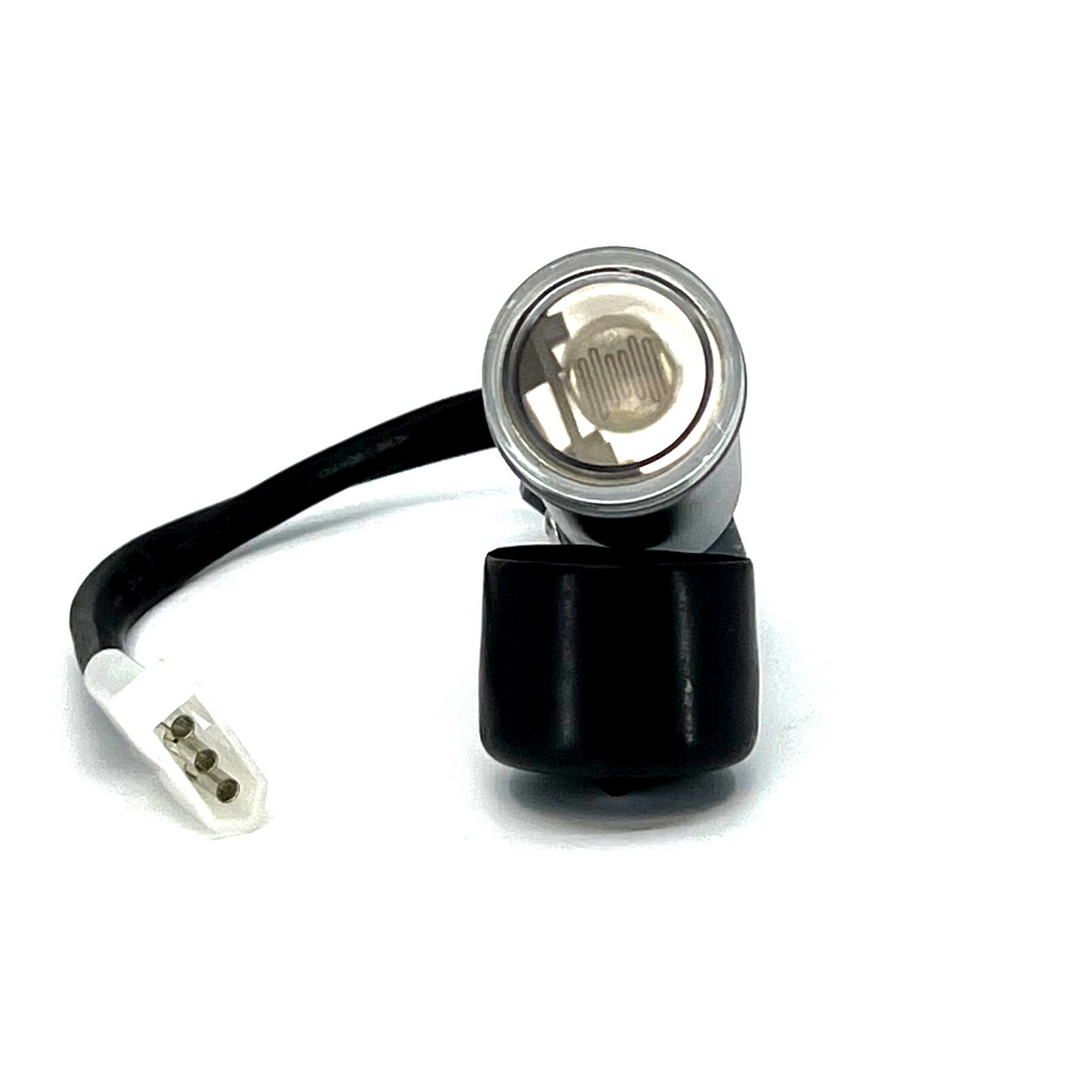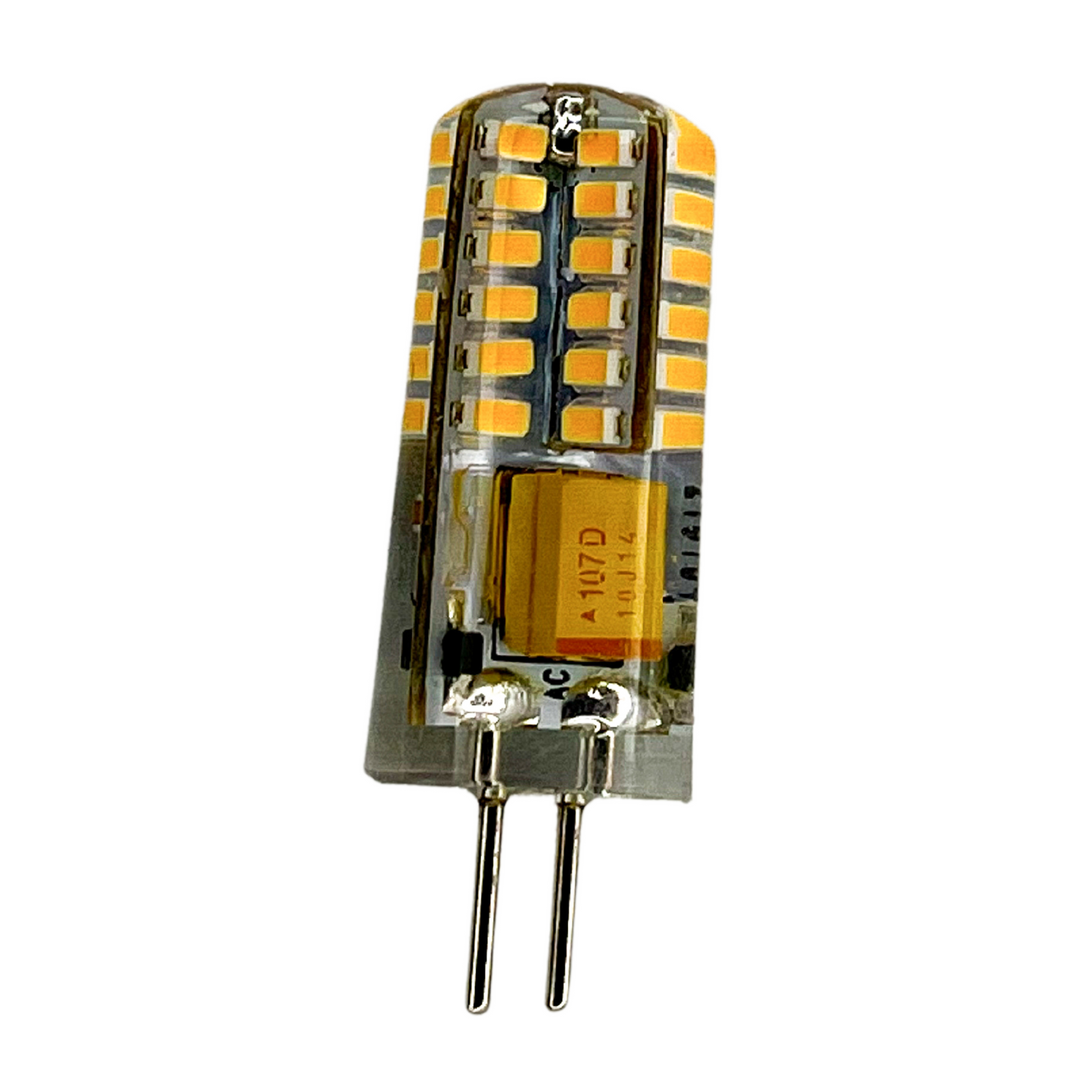
Why Automatic Sprinkler System Repair Is the Ultimate Test of Patience
|
|
Time to read 7 min
Tending to a lush, green lawn is a goal for many homeowners, a task largely dependent on the efficiency of an automatic sprinkler system. While these systems are marvels of convenience and water conservation, maintaining and repairing them can test even the most patient individual. This comprehensive guide explores the complexities of sprinkler systems, offering insights into common issues, DIY troubleshooting, and when professional help is warranted.
Automatic Sprinkler System Repair: The Intricacies of Sprinkler Systems
Anatomy of a Sprinkler System
An automatic sprinkler system is more than just a set of sprinkler heads; it's an intricate network of valves, pipes, controllers, and sensors. Each component plays a vital role, and understanding this interconnectedness is key to effective maintenance and repair.
Water Pressure Dynamics
Maintaining consistent water pressure is essential for uniform lawn irrigation. Pressure issues can manifest as weak water flow or over-spraying, leading to uneven lawn health. Recognizing and addressing these fluctuations forms a critical part of system upkeep.
Technological Advances in Sprinkler Systems
Modern systems often incorporate smart technology, offering features like weather-based adjustments and remote control. While these advancements add convenience, they also introduce new maintenance and troubleshooting challenges.
Common Challenges in Sprinkler System Maintenance
Frequent Issues
Common problems in sprinkler systems range from leaky valves and broken heads to more complex electrical issues within controllers. Each issue presents its own set of symptoms and repair challenges.
Impact on Lawn and Water Usage
A malfunctioning sprinkler system can lead to a variety of lawn health issues, from overwatering to dry patches, as well as increased water bills due to inefficiency. Regular maintenance is crucial to ensure the system's effective operation.
Seasonal Considerations
Different seasons bring unique challenges for sprinkler systems. Winter conditions can cause pipe damage due to freezing, while summer may require adjustments to watering schedules to cope with increased heat and evaporation rates.
DIY Troubleshooting and Repair Guide
Basic Troubleshooting Steps
DIY repairs can be a cost-effective solution for many common sprinkler issues. Homeowners can start by inspecting the control panel, checking sprinkler heads, and looking for visible signs of leaks.
Essential Tools for Repairs
A basic toolkit for sprinkler system repairs should include screwdrivers, pliers, a multimeter, and sometimes specialized tools like pipe cutters or valve locators. Knowing how to use these tools effectively is crucial for successful DIY repairs.
Step-by-Step Repair Instructions
Detailed instructions for common repairs, such as cleaning clogged nozzles or adjusting sprinkler heads, can empower homeowners to tackle maintenance tasks confidently. Visual aids or diagrams can be particularly helpful in guiding these processes.
When to Seek Professional Help
Identifying Complex Issues
Some sprinkler system issues, such as underground leaks or advanced electrical problems, require a professional's expertise. Knowing when to call in a specialist can save time and prevent further damage to the system.
Choosing the Right Professional
Finding the right professional for sprinkler system repair involves researching and vetting potential candidates. Look for licensed, insured professionals with good reviews and ask for detailed quotes to compare services and costs.
Cost vs. Benefit Analysis
While professional repairs might seem expensive initially, they often offer long-term savings by ensuring the job is done right the first time. Weighing the cost of professional services against the benefits of an efficiently running system is crucial.
Repair or Replace? Making the Right Decision

Tips and Facts
Additionally, here are three practical tips or facts about maintaining automatic sprinkler systems, each detailed in at least three sentences:
1. Regular Inspection and Cleaning of Sprinkler Heads: It's essential to regularly inspect and clean sprinkler heads as they can become clogged with dirt and debris, leading to inefficient watering and dry patches on your lawn. Use a small brush or compressed air to gently clean the nozzles. This simple maintenance step can significantly improve the efficiency of your sprinkler system and ensure even water distribution.
2. Seasonal Adjustments for Optimal Performance: Automatic sprinkler systems should be adjusted with the changing seasons. In the warmer months, increase the frequency and duration of watering to keep up with higher evaporation rates. Conversely, reduce watering in cooler months when plants require less water. This not only conserves water but also prevents over or under-watering of your lawn.
3. Monitoring and Adjusting Water Pressure: Consistent water pressure is vital for the effective operation of sprinkler systems. Low pressure can lead to inadequate coverage, while high pressure can cause damage to the system and excessive water usage. Use a water pressure gauge to monitor the pressure and adjust it as needed, either by regulating the main valve or by installing a pressure regulator, to maintain optimal performance and extend the lifespan of your sprinkler system.
These tips, along with the notable quote, offer valuable insights into the importance and practicalities of maintaining an automatic sprinkler system.
Frequently Asked Questions
Based on the analysis of the top five search results for "Why Automatic Sprinkler Repair Is the Ultimate Test of Patience", here are six unique and insightful questions about the topic, each with a comprehensive answer:
1. Why is consistent water pressure crucial for automatic sprinkler systems?
Answer: Consistent water pressure is vital for ensuring even distribution of water across the lawn. Irregular water pressure can lead to parts of the lawn receiving too much or too little water, causing uneven lawn health and potentially increasing water bills due to leaks or inefficient use.
2. What are common issues encountered with automatic sprinkler systems?
Answer: Common issues include faulty valves, leaky sprinklers, damaged pipes, electrical problems like transformer failures, and controller malfunctions. These problems can lead to uneven watering, leaks, increased water bills, and the failure of the system to activate or operate correctly.
3. How can homeowners troubleshoot and repair common sprinkler system problems?
Answer: Homeowners can troubleshoot issues by inspecting the control panel, checking sprinkler heads and valves, looking for leaks, and ensuring the rain sensor is functioning. Common repairs include cleaning or replacing clogged nozzles, tightening joints or replacing damaged pipes, and adjusting sprinkler heads.
4. What are the benefits of hiring a professional for sprinkler system repairs?
Answer: Hiring a professional for repairs can save time and money in the long run. Professionals can quickly assess and resolve issues, identify potential problems, and have the right tools and expertise. They also ensure repairs are done correctly and safely.
5. When should one consider replacing their automatic sprinkler system instead of repairing it?
Answer: Consider replacing the system if it is nearing the end of its lifespan, requiring frequent and expensive repairs, wasting water, or if there have been significant changes in landscaping. Upgrading to a newer system with water-saving technology and smart features can also be more cost-effective in the long run.
6. What is involved in an internal pipe inspection for sprinkler systems?
Answer: An internal pipe inspection, a requirement by the NFPA every five years for systems with metal piping, involves a certified contractor visually inspecting the inside of the sprinkler system piping. This test checks for corrosion or other substances that could clog the sprinkler head or reduce water flow, ensuring the system operates effectively.
Maintaining System Health
Routine tasks such as cleaning filters, checking for leaks, and ensuring controller accuracy are essential for keeping the system in optimal condition. Regular maintenance not only extends the life of the system but also ensures efficient water usage.
Repairing an automatic sprinkler system indeed demands patience, attention to detail, and a good grasp of its technical aspects. For homeowners who decide to undertake this task themselves, it's crucial to have a clear understanding of the system's components - valves, pipes, sprinkler heads, and controllers.
For those embarking on DIY repairs, start with the basics: regularly clean and adjust sprinkler heads, check for leaks, and ensure the system's controller is correctly programmed. Simple tools like a screwdriver, pliers, and a multimeter can be invaluable. However, there are situations where professional help is necessary. Complex issues like underground leaks, electrical faults, or system redesign require specialized skills and tools.
This blog post aims to demystify the complexities of automatic sprinkler repair, providing practical advice for both DIY enthusiasts and those considering professional services. Understanding when and how to tackle repairs or when to call in experts can save time, prevent water wastage, and keep your lawn lush and healthy.
Our Recommendation
Assessing System Age and Performance
The decision to repair or replace a sprinkler system depends on several factors, including its age, repair history, and overall performance. An outdated or frequently malfunctioning system might be more economically replaced.
Advantages of Upgrading
Upgrading to a modern sprinkler system can offer enhanced efficiency, smarter water usage, and improved lawn health. Consider the long-term benefits and potential savings on water bills when deciding to upgrade.
Environmental and Financial Considerations
Investing in a modern, efficient sprinkler system contributes to water conservation efforts and can result in significant financial savings over time.
The Critical Role of Regular Maintenance
Scheduling Routine Checks
Regular maintenance, including seasonal adjustments and system checks, is vital to ensure the longevity and efficiency of your sprinkler system. Setting a maintenance schedule helps in early identification and resolution of potential issues.
Conducting Internal Pipe Inspections
Periodic internal pipe inspections are crucial, especially in systems with metal piping, to check for corrosion or buildup that might impair system performance.
Concluding Thoughts
Repairing and maintaining an automatic sprinkler system requires patience, knowledge, and sometimes the assistance of a professional. A well-maintained system ensures a healthy lawn, conserves water, and can offer peace of mind. By taking a proactive approach to sprinkler system care, homeowners can enjoy the benefits of a beautiful, thriving landscape. Book Now! and get a Free Quote.












